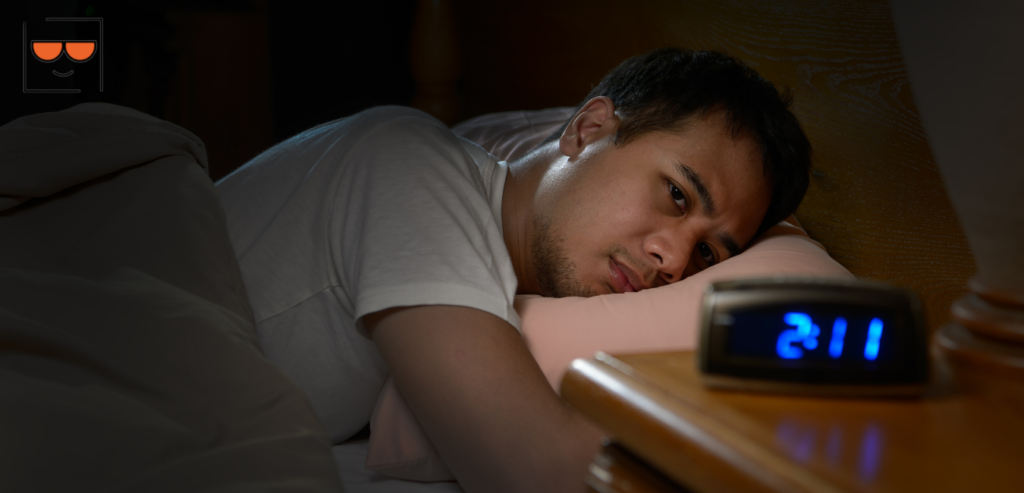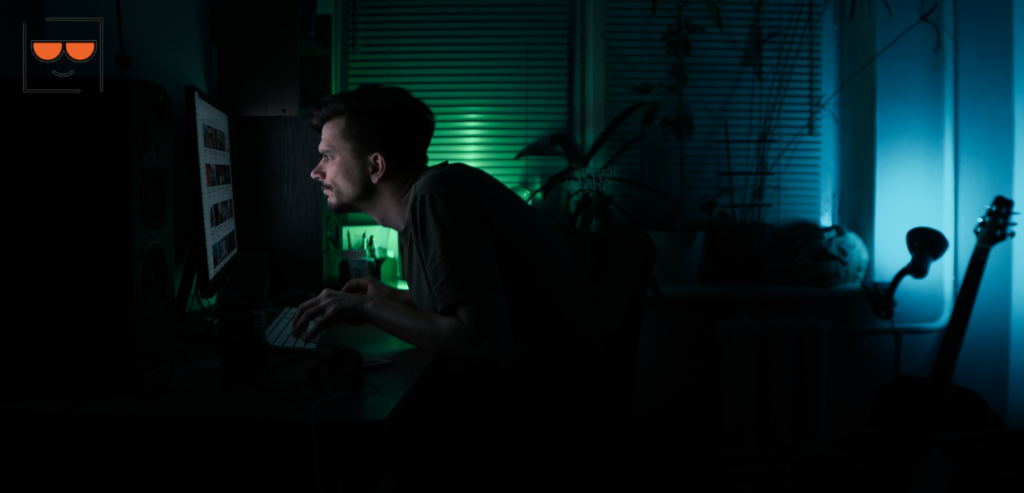
Sleep is an imperative piece of the puzzle for excellent health. Yet people are sleeping much less than they have in the past. In addition, sleep quality has also declined in large to the blue light generated from digital devices, which may be tricking your brain into thinking it’s daytime. Many studies have suggested that an oversaturation of blue light in the evening hours can disrupt your natural sleep-wake cycles, which are crucial for your health. This article will cover how blue light blocking glasses can improve your sleep cycle.
What is Blue Light?
Blue light is everywhere, from light derived from the sun to artificial light created by screen-based devices. Our visible light spectrum comprises red, orange, yellow, green, blue, indigo, and violet light, which vary in wavelength and energy intensity from one another. Blue light, however, has one of the shorter wavelengths with the highest energy levels, which is why it’s known as High-Energy Visible light, or HEV. Unfortunately, blue light can have harmful effects on our health, including sleep issues.
The harmful effects of blue light, especially in the evenings, have many concerned with reducing artificial blue light from screen-based devices.
How Blue Light Disrupts Your Sleep
Overexposure to blue light emissions can lead to insomnia and restlessness during the night. In addition, if you watch TV or browse the internet before bed, you might unknowingly reduce the quality and quantity of your sleep.
Circadian Rhythm
Your body possesses an internal clock that regulates your circadian rhythm. The circadian rhythm is a 24-hour biological cycle that impacts many of your internal functions, such as determining when your body is ready to be awake or asleep. However, your circadian rhythm needs signals from your environment- most importantly daylight and darkness- to adjust.
The hormone melatonin performs a crucial role in your natural sleep-wake cycle. Exposure to light inhibits melatonin production, making it more difficult to fall asleep. But not all light is the same-blue light has the highest effect on melatonin production. So by filtering out blue light the best you can, you increase melatonin production and allow faster and more restful sleep.

Blue Light and Sleep Today
Unfortunately, today’s modern light bulbs and electronic devices, especially computer monitors, produce vast quantities of blue light and will disrupt your internal clock if exposed to them in the evenings. When it starts to get dark, your pineal gland secretes melatonin, which instructs your body it’s time for bed.
Stimulation from blue light can help us stay alert, whether from natural sources such as the sun or blue light-emitting electronic devices. However, while the stimulus can be a valuable resource during the day, it can interfere with sleep in the evenings. For example, watching TV or browsing the internet before bed will stimulate melanopsin-containing cells and trigger an alert state in your brain, leading your brain to believe it’s daytime.
Good Sleep is Essential
You will sleep between 25 and 30 years of your life. A goodnight’s sleep is essential for your health, mood, and performance. By using artificial light or blue light-emitting devices in the evening, you are setting your biological clock back, resulting in a delay in melatonin production. As a result, it will become hard for these individuals to fall asleep and wake up in the morning.
Melatonin is a potent antioxidant, especially for your brain. It slows down brain aging and damage, but suppression of your melatonin production can start to have adverse health effects, including sleep deprivation.
Tinted Glasses May Help
Blue light blocking glasses for sleep offer the easiest and most effective way to avoid blue light exposure at night. These glasses effectively block all blue light. Thus, your brain doesn’t get the signal that it’s supposed to stay awake.
Studies show that people utilizing blue light blocking glasses when in a room with artificial lighting or an electronic device produce an equal amount of melatonin compared to those with a natural sleep-wake cycle. In addition, sleep glasses have prompted significant improvements in sleep and mental performance.
In a two-week study, 20 people used blue light blocking glasses or glasses that didn’t block blue light for three hours before bed. The group with blue light blocking glasses experienced significant sleep quality and mood improvements.
Blue Light Blocking Glasses for Sleep?
Yes, one of the primary purposes of blue light blocking glasses is to reduce eye strain from digital devices; however, one of the lesser-known benefits of blue light blocking glasses is their impact on your sleep quality and quantity. While your eyes are not the only thing responsible for signaling your brain to start melatonin production, they are an essential part of the equation.
Adjusting how and when you are exposed to blue light can help you sleep faster and longer throughout the night. This is particularly true when combining blue light blocking glasses with other techniques like early-morning exercises, drinking water, and dimming your light 3 hours before bed.
How to Use Blue Light Blocking Glasses
Not to worry, you don’t have to wear blue light blocking glasses for the entirety of your day to gain the sleep benefits. Instead, experts suggest wearing blue light blocking glasses only 3 hours before bedtime to ensure a restful night’s sleep.
Closing
The blue light produced from artificial light and screen-based devices may inhibit your sleep if exposed to it at night. If you are experiencing a restful night or wake up groggy in the morning, try reducing your exposure to blue light in the evening. Blue light blocking glasses may be particularly effective without having to reduce your screen time in the evenings. We highly recommend trying a pair of LowBlueLights’ blue light blocking glasses for sleep because you deserve a good night’s sleep.
Ready to try Blue Light Blocking Glasses?
Start Blocking Blue Light Today!

 10% off Blue-Free Motion Sensing Light with Coupon Code BLUEMOTION10
10% off Blue-Free Motion Sensing Light with Coupon Code BLUEMOTION10